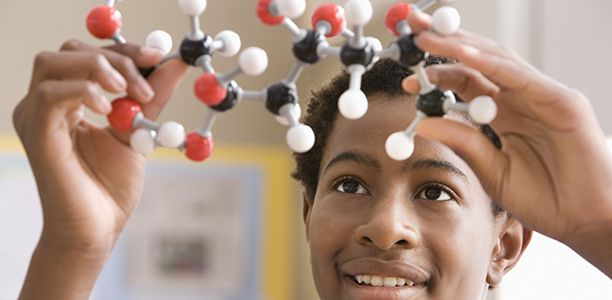Secondary school teacher Adam Wallace has spent three days of the past two months at Flinders to discover what the University’s scientists are up to, and will take his insights back to Unley High School for the benefit of his students.
Mr Wallace, a physics teacher, came to Flinders as part of the ‘Teacher in Residence’ initiative, a new program which sees senior secondary science, technology, engineering and mathematics (STEM) teachers build capacity through direct contact with academics.
Facilitated by the Southern Knowledge Transfer Partnerships office at Flinders, the initiative is supported by the Advanced Technology Industry Schools Pathway Project (ATISPP) and the Department of Education and Child Development, which organises release time for the participants.
Unley High School has been a partner school in the ATISPP since 2010. Funded from the Commonwealth by the Defence Materiel Organisation (DMO), the program’s focus is to increase the number of students in STEM.
The ‘Teacher in Residence’ program aims to give academics and teachers reciprocal insights into their respective curricula, and Mr Wallace was specifically interested in finding ways to encourage the transition of STEM students to university by improving the continuity of course content and delivery.
Mr Wallace’s main contact at Flinders was nanotechnology lecturer Associate Professor Jamie Quinton; he also met several other specialist academics to tour their laboratories and discuss their research and teaching.
Mr Wallace said one of the major outcomes of his residence will be closer liaison between Flinders and Unley High’s science programs, which may include presentations by science academics to Year 11 students at the school.
Also proposed is setting up a ‘taster’ day for Year 10 students, which would offer a series of workshops in different science disciplines to assist students in choosing their subjects for the following years and beyond.
“We want to give our students a picture of what the science pathways there are beyond a school setting and also help them differentiate between the various science learning areas,” Mr Wallace said.
“We find a lot of kids want to do science in Year 11, but don’t have a clear distinction between the different disciplines.”
At the same time, Mr Wallace said, students need to appreciate the breadth of opportunities for study in science and understand that the borders between science disciplines are fluid, with areas such as nanotechnology encompassing aspects of physics, chemistry and biology.
Associate Professor Quinton said that reducing the culture shock between school and university study was important in successfully engaging students, and that better reciprocal understanding between teachers at secondary and tertiary level would aid transition.
Mr Wallace said he found the program enjoyable and valuable, and that collaboratively developing the agenda for his visits had been especially effective.
“Lots of ideas that come up in professional development can fall by the wayside – my time at Flinders has been very purposeful and productive,” he said.
(Source: Flinders University)










